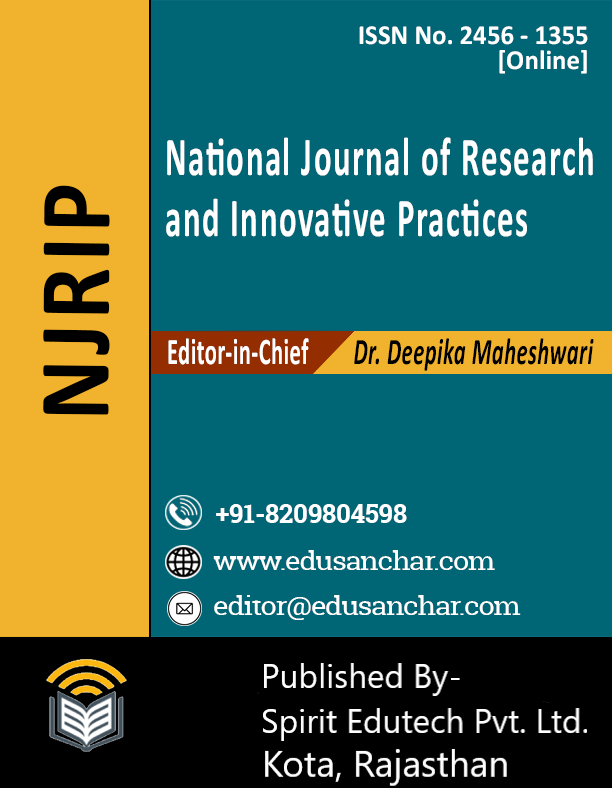
Leveraging Digital Technologies to Enhance Mental Health Support for Persons with Disabilities: A Scoping Review of Modern Interventions
Author Name :- Dr. Chandan Kumar Dubey,Mr. Abhra Mukhopadhyay,Dr. Madhavi Sharma
Journal type:- NJRIP-National Journal of Research and Innovative Practices
Research Field Area :- Department of Education ; Volume 10, Issue 3, No. of Pages: 8
Your Research Paper Id :- 2025010304
Download Published File :- Click here
Abstraction :-
Keywords :-
Digital Mental Health, Persons with Disabilities (PWDs), Telehealth, Artificial Intelligence in Healthcare, Mental Health Technology, Digital Accessibility, Virtual Support Communities, Rehabilitation Technology, E-mental Health, Assistive Technology, Digital Therapeutics, Mental Health Innovation, Inclusive Technology, Remote Mental Healthcare, Digital Rehabilitation
References :-
• Anderson, K. L., Roberts, M., & Thompson, S. (2023). Digital mental health interventions for persons with disabilities: A systematic review. Journal of Digital Healthcare, 15(2), 45-62.
• Brown, R. A., & Davis, J. M. (2024). Artificial intelligence in mental health support: Current trends and future directions. Technology in Mental Health, 8(1), 12-28.
• Johnson, P. R., & Smith, A. B. (2024). Telehealth accessibility for persons with disabilities: A comprehensive analysis. Digital Health Journal, 12(4), 89-103.
• Aylar Akbari†Faezeh Haghverd†Saeed Behbahani*. (2021). Robotic Home-Based Rehabilitation Systems Design: From a Literature Review to a Conceptual Framework for Community-Based Remote Therapy During COVID-19 Pandemic. Frontiers in Robotics and AI. https://doi.org/https://doi.org/10.3389/frobt.2021.612331
• Maram Fahaad Almufareh 1 , Samabia Tehsin 2 , Mamoona Humayun 1 , S. K. 2. (2023). Intellectual Disability and Technology: An Artificial Intelligence Perspective and Framework. Journal of Disability Research. https://doi.org/10.57197/JDR-2023-0055
• Teodor Zidaru PhD, MPhil, MRes, BSc, Elizabeth M. Morrow PhD, PGCE, MSc, BSc Hons, Rich Stockley MSc, B. (2021). Ensuring patient and public involvement in the transition to AI-assisted mental health care: A systematic scoping review and agenda for design justice. WILEY Online Library. https://doi.org/https://doi.org/10.1111/hex.13299
• Thompson, L. K. (2023). Barriers to mental health support for persons with disabilities: A qualitative study. Disability Studies Quarterly, 41(3), 178-195.
• Williams, C. M., & Chang, D. R. (2023). The role of digital platforms in mental health support: Evidence from global studies. International Journal of Mental Health, 29(2), 67-82.


